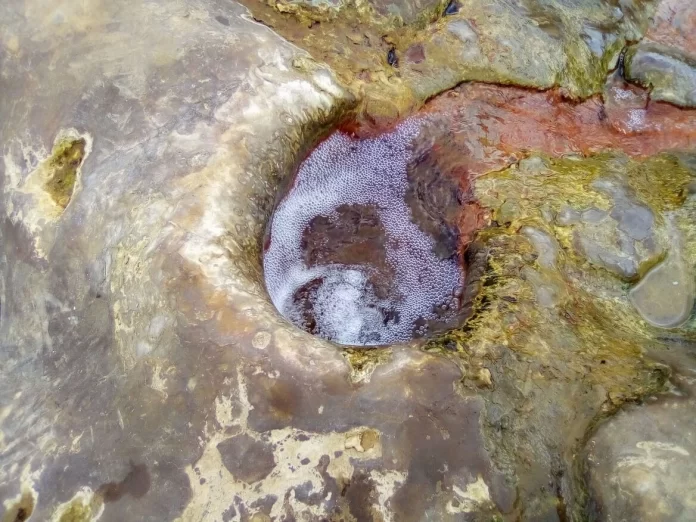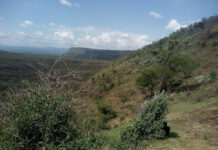By Gitonga Brian, DevReporter, Meru County

Key Highlights
- Tharu Salty Water Springs have benefited locals in Meru County for decades, but human activities now threaten this vital resource.
- The springs, which have a historical significance, are located in Tharu village, Mikumbune Location, Imenti South Constituency, Meru County.
- The salty water, locally called Mwonyo, is believed to cure heartburns among other benefits.
Pollution remains a huge environmental challenge, with human activities topping the list of sources of pollution. Tharu Salty Water Springs, which are located in Tharu village, Mikumbune Location, Imenti South Constituency, Meru County, have not been spared the pollution challenge. Pollution of the springs threaten their historical significance as well as other benefits locals draw from them.
Albert M’Inoti, 87, resides in Kiamutuja village, Imenti South Constituency, shares the historical importance of Tharu Salty Water Springs as part of the roles of Kibaabu elderly age set.
“In colonial times, elephants left Mount Kenya Forest to drink Mwonyo (salty water), which could lead to conflicts. But now, due to the electric fence, elephants no longer come. Mau Mau fighters also left the forest at night to come and drink the water while collecting supplies from villagers,” explains M’Inoti.
John Nkoroi, from Mikumbune in Imenti South, explains the Tharu Salty Water Springs’ salty water categories, which he says goes deep into their tradition, based on the observation that different animals, as well as humans, drank from different springs. “Our ancestors categorised it for humans, cows, dogs, cats, donkeys, and elephants.”
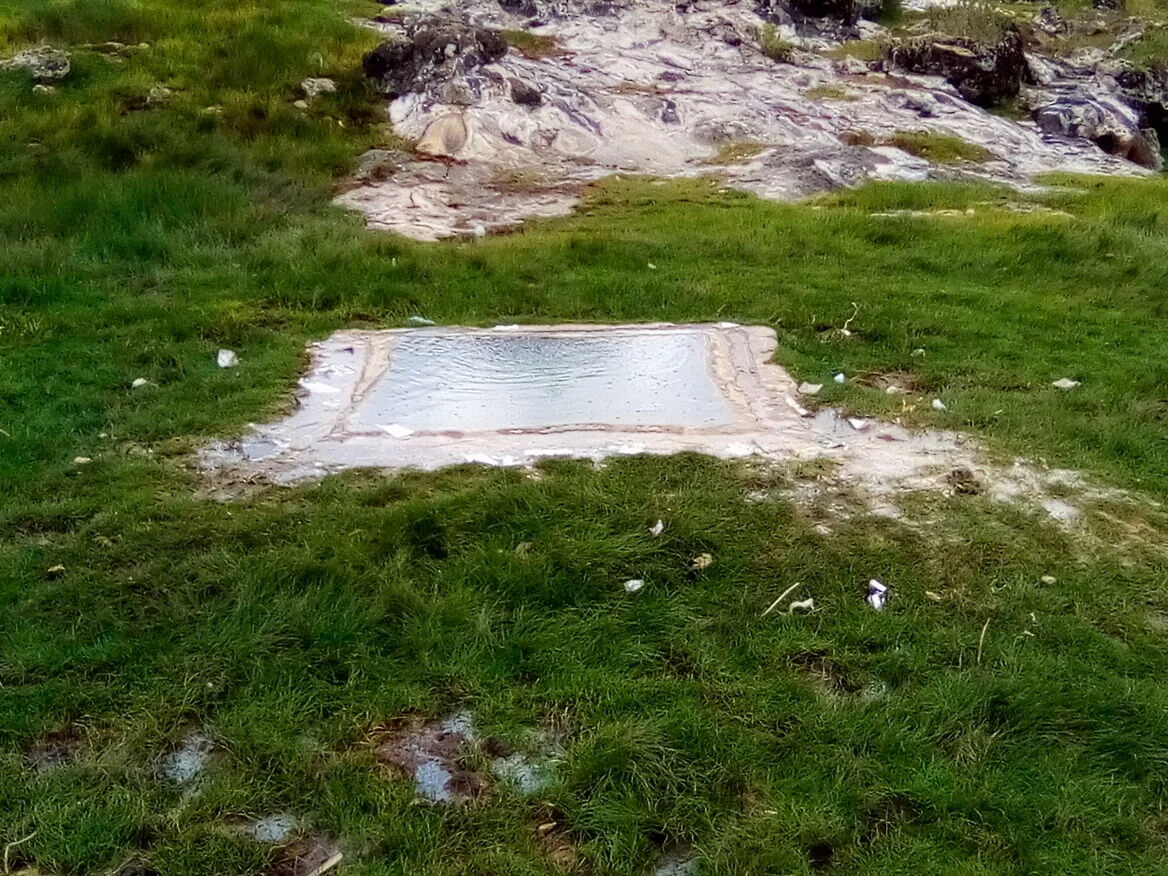
Community Benefits
Gilbert Mutwiri, 72, from Mutharene village, Imenti South, emphasises the spring’s transformative impact and benefits to the community.
“We deliver Mwonyo in 3-liter containers for Ksh. 200 each, which helps to finance our children’s education. I also use the water for Logulo, a traditional arrowroot leaf porridge renowned for treating anemia and aiding cows during delivery.”
Jolly Kathambi, from Nkuene village in Imenti South, explains Mwonyo’s various uses and highlights the pollution concerns:
“Mwonyo, in our dialect, is renowned for curing heartburn and providing nutrients for animals and pregnant women. However, plastic and human waste pollution is increasing and threatening it. We appeal for the government’s intervention.”
John Mutethia, 40, of Tharu village in Imenti South, is unhappy with the state of Tharu Salty Water Springs. He recounts the county government’s promise, during former Governor Peter Munya’s era, to fence and manage the resource. Mutethia is upset about the lack of toilets, which forces people to use nearby bushes, thereby polluting the water resource.
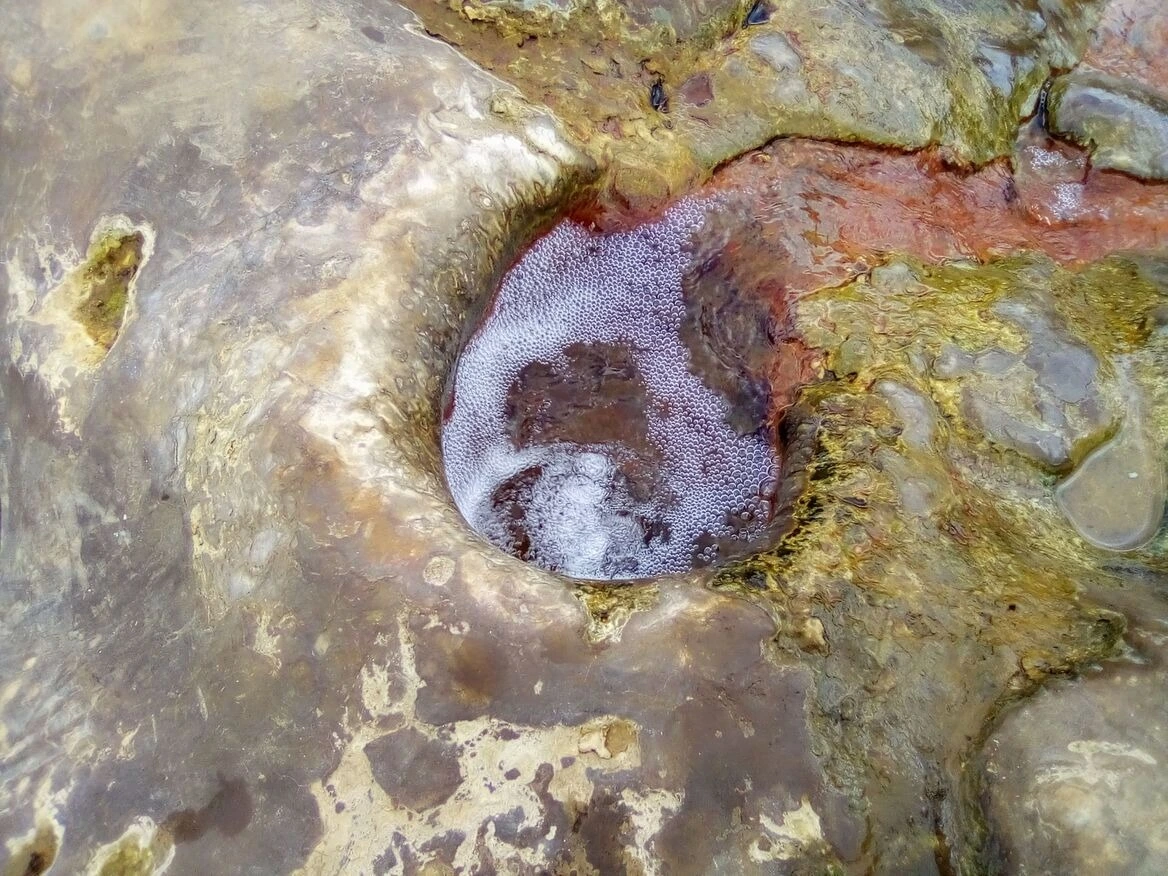
Root Cause of Pollution
Joel Muriungi Kirima, the chief of the Mikumbune Location, home to the Tharu Salty Water Springs, points out the main cause of pollution:
“The area is a popular tourist attraction, especially on weekends and holidays. Due to unrestricted access, people approach the springs from different directions, which has led to pollution.”
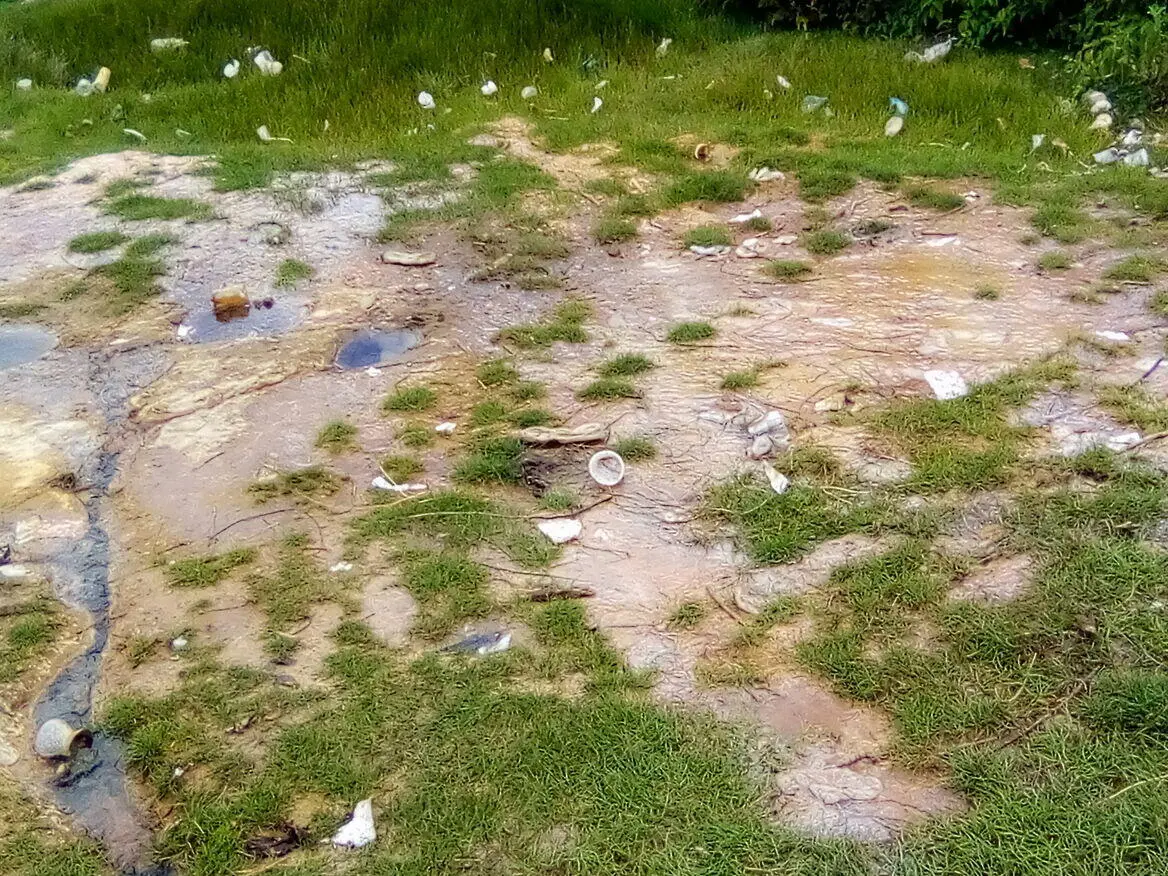
Land Grabbing Complaints
Chief Joel Muriungi mentions cases of land grabbing and the measures taken to address it, including removal of encroachers.
He also mentions plans to plant indigenous trees to protect the riparian area.
Efforts by the County
Gitonga Angelo, the Director of Environment and Climate Change in the Meru County Government, outlines the efforts being made to safeguard water resources, as mandated by Article 69(1a) of the Kenyan Constitution, and to advance Sustainable Development Goal (SDG) 6, which emphasises clean water and sanitation for all.
“We collaborate with government agencies such as the Water Resources Authority, community organisations, and civil society groups like Net-Care. I am currently partnering with Net-Care to protect a spring in Kanyenje, Imenti South Constituency,” explains Angelo.
Water resources are crucial for all life, but pollution poses a serious threat. The government and the citizens must prioritise environmental conservation, as mandated by the Kenyan constitution.



